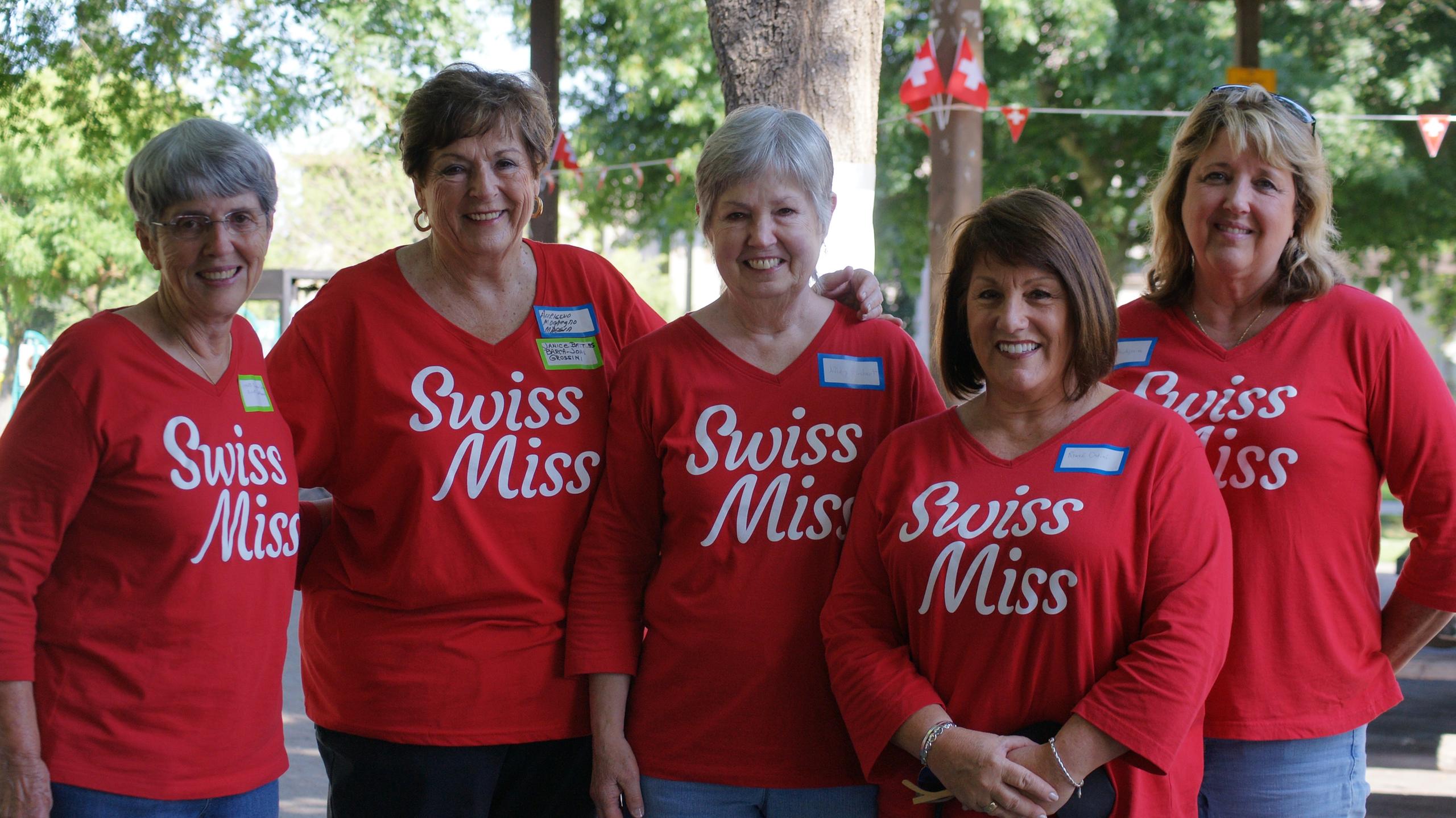
Digging up Swiss roots: our community shares tips and tricks

To escape poverty in the 19th century, many Swiss crossed borders and even oceans in search of better opportunities. Today, their descendants are passionately retracing their ancestors’ footsteps to uncover their Swiss roots.
Signs of Swiss emigration can be found on several continents, as the book World atlas of Swiss places illustrates. There’s a New Geneva in Ireland, a Villa Lugano in Buenos Aires, and a city called Berne, in Indiana, United States. People from various regions in Switzerland have emigrated to Australia, South and North America, various European countries and North Africa.

More
New Bern, a boringly normal town ‘proud to wear the bear’
Considering the travel conditions of the time and how much a one-way ticket cost, it’s no surprise that many Swiss emigrants never returned to their homeland. Instead, they settled and prospered in their host countries, passing down their family name and Swiss traditions to their descendants.
We asked our community if they had Swiss ancestors and whether they had travelled to Switzerland to carry out genealogical research. Over the past months, readers have shared their stories and provided a vast collection of personal anecdotes from around the world.
More
Descendants came to see for themselves
Most people who left a comment under our debate write from the United States, where emigrants from several Swiss cantons settled. “I was able to trace my maternal Persinger side to Zumikon [canton Zurich]. They came to the United States on the ship Mercury, and eventually settled in Republic County, Kansas” wrote starsinhereyes75. “My paternal great grandfather Christian Graf immigrated to the US in 1877. His origin was Heiligenschwendi [canton Bern]” says martha71654. Carolprudm wrote “My maternal grandparents emigrated to New Jersey from St. Gallen to work in the embroidery business. Their names were Ochsner Studerus and Doerig.”
The conspicuous number of Swiss immigrants settling in the US allowed for family anecdotes and stories of their journeys to be collected and preserved, as Arnold Ambiel from California, explains. “Living on the West Coast of the United States, we have great access to records and family histories of our family members migration path. Often time we have US based info that helps complete a Swiss based family search for those that left.”

More
How America’s genealogy obsession touches Switzerland
A few people, like martha71654 who visited Gruyères last year with her daughter, have travelled to Switzerland to discover their ancestors’ homeland. Ajnic said he had visited Ticino “and hopes to return soon. More interested in how they lived than the genealogical aspect”.
Some came to complete their genealogical research, as many Swiss registries might not be accessible online. “I was fortunate to visit Villeret and St. Imier, Switzerland in 1966 and again about ten years later where I traced Lydie’s family back another three generations” wrote PrairieFleur3. Carol Waser told us she had just got back from a two-week vacation in Switzerland, during which she was “able to go to the Kloster Monastery in Engleberg and obtain copies of ancestry records back to 1600’s.” Celeste said that she had travelled to Mettmenstetten, canton Zurich, in January to do some research.
A sharing and caring community
Readers who engaged in the debate also shared some tips and tricks with other fellow genealogists. Andrea Silver shared a link to her blog, where she explains in great detail how she found out that her great-great-grandmother Hermine was from Switzerland, a country she visited this summerExternal link.
Two people saw they had the same name in their family tree and started getting very technical, mentioning autosomal DNA and Y-DNA matches. To find out if he’s somehow related to Eringobragh, gkaDanaLiechti shared the link to his family tree on Ancestry.com.
Susan Schibli, from the UK, told of her extensive research into both her paternal and maternal family tree and took the time to explain to Kareem. Dodger and Rissa the best way to take a DNA test. Arnold Ambiel suggested three websites to Victoria-Lupus where she could find information about her husband’s German ancestors, as she said “the popular Ancestry sites show very little information from Italy and nothing from Switzerland. These programs seem to be geared mainly to Americans and their Anglo-Saxon ancestry.”
The dark hole of genealogical research
Despite tracing their lineage back of a couple of centuries, many readers still have unanswered questions. Jblock shared the little information he has on his paternal great-grandparents who “were both born in Schleitheim Switzerland and emigrated to the United States, born around 1850. I can’t find very much on either one.”
In his comment, dgsscc writes that they’ve “traced the lineage back to the mid 18th century. I would very much like to know what prompted my ancestor to make the long journey to Australia of all places. I am still looking for that answer.” Celeste says that she still needs “to talk to someone who has information about the Reformed Church in Mettmenstetten in the 1520s and any information about the Gallmanns from the Mill at Wyssenbach (Wissenbach) from the 1520s – 1720s or as long as they were there.”

The limits to genealogical research – despite the availability of time – seem quite virtual: as long as there are public records, it’s technically possible to trace a lineage. For some readers, like RepatriatedSwiss, genealogical research is an entertaining hobby: “Tracing my Swiss heritage is always fun to see what new things I discover.”
Some people have told of friendly Swiss encounters while on their quest for genealogical information, and some were able to meet their distant relatives with whom they now keep in touch. Quite a few are planning to return to Switzerland or visit for the first time. We met Juliette Buchanan this summer, who came all the way from Australia to Ticino to see where her great-great-grandfather Antonio Vosti emigrated from. Another family has agreed to let us join them on their family trip next spring, where they plan to uncover more details of their Swiss ancestors.

In compliance with the JTI standards
More: SWI swissinfo.ch certified by the Journalism Trust Initiative





























You can find an overview of ongoing debates with our journalists here . Please join us!
If you want to start a conversation about a topic raised in this article or want to report factual errors, email us at english@swissinfo.ch.